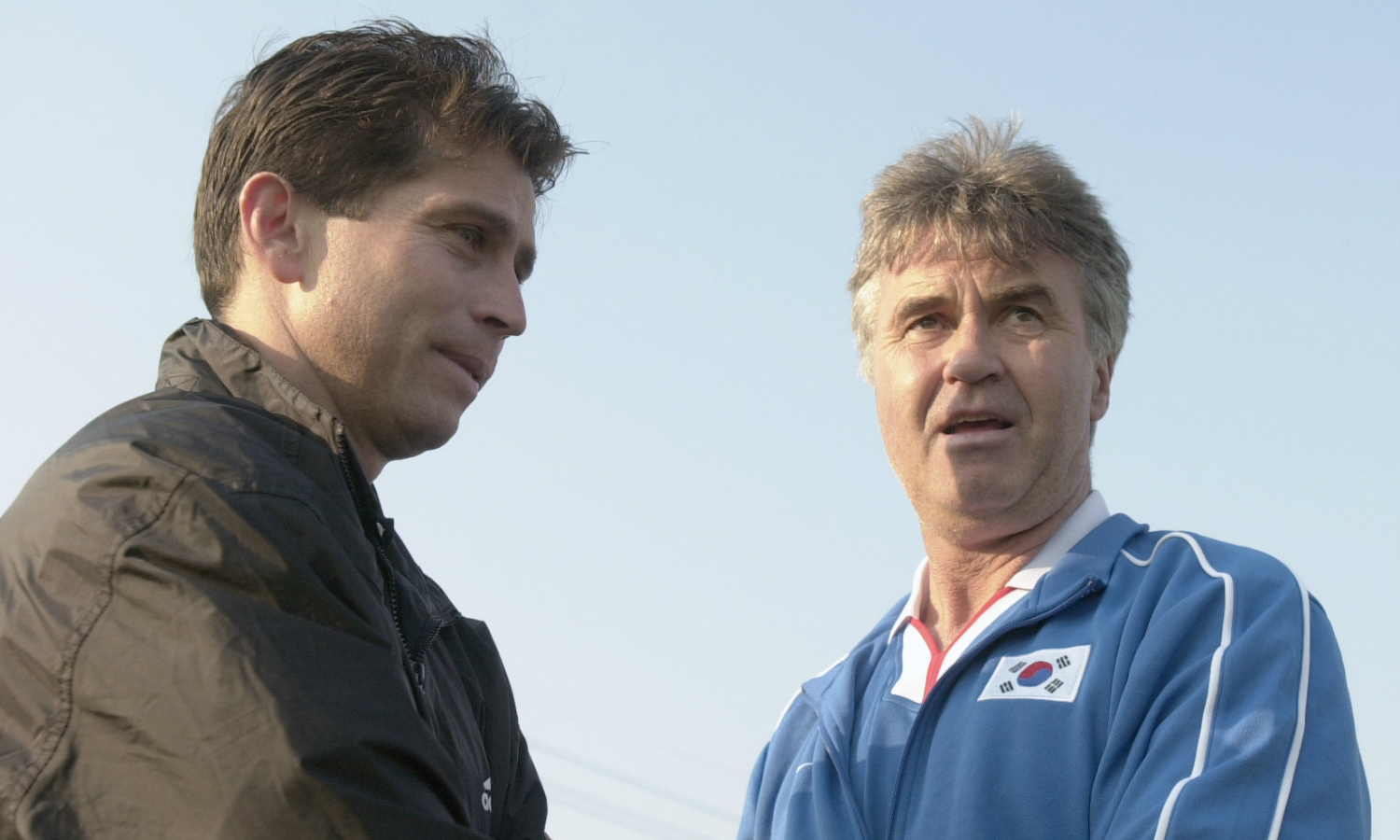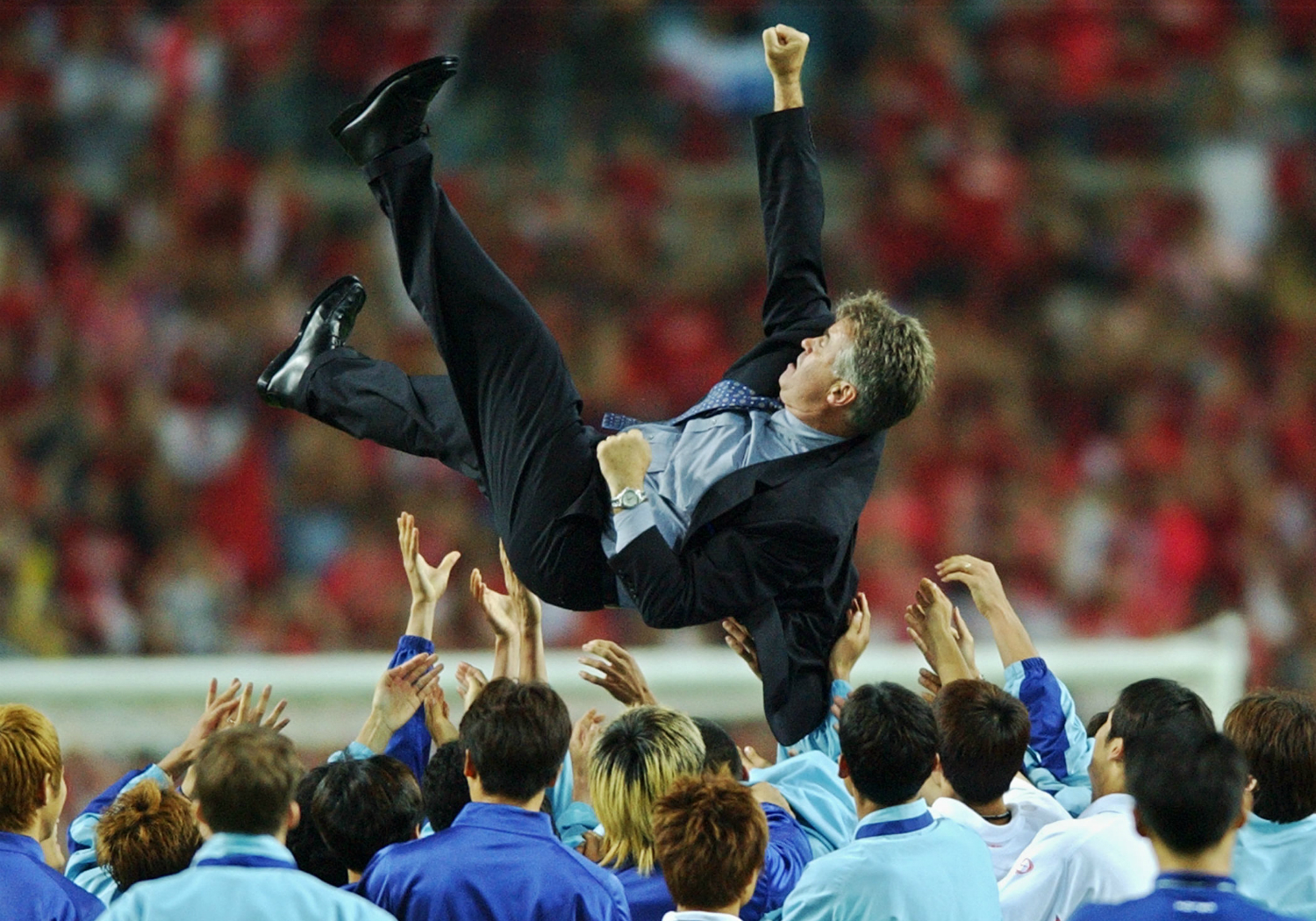It seems the fate of every new Caltex Socceroos boss is to at some stage have their tenure assessed in comparison to Guus Hiddink.
The legendary coach, who led the national team for fewer than 12 months, made a mark on Australian football like few others before him.
It's a common theme in the Dutchman's career: take over a team devoid of belief and deliver something truly special.
Sustained success took him to posts with Netherlands, Real Madrid, Russia and Chelsea before and after his time with the Caltex Socceroos but it was with Korea Republic that Hiddink made an impact to match his achievements in Australia.
With the two nations set to meet in Brisbane again this November, we take a trip down memory lane to celebrate our shared hero.
TICKETS: Secure your seat to see the Caltex Socceroos in action
FOCUS: Three Korea Republic players to watch
Sowing the seeds
After being appointed as coach of Korea Republic in November 2000, Hiddink's interest in a future spell Down Under may well have been sparked by an unlikely meeting at the 2001 FIFA Confederations Cup.
Signs of the extraordinary scenes to come were not immediately evident at the tournament as the co-hosts, Korea Republic, slumped to a concerning 5-0 defeat at the hands of reigning world champions France in their opening Group A game.
A late 2-1 win over Mexico would follow before Korea Republic got the better of Australia in Suwon, Hwang Sun-hong scoring the only goal midway through the first half.
But with a 2-0 victory against Mexico and shock 1-0 upset of France already secure, it was Frank Farina's side that would progress. Australia finished second in the group, behind France, and eliminated Korea Republic on goal difference.
Hiddink surely did not forget the potential he witnessed first-hand.

Becoming a legend
With another 12 months to overhaul his team, Hiddink's transformative effects on Korea Republic became evident in sensational circumstances at the 2002 FIFA World Cup.
Memorable wins over Poland and Portugal paved the way for perhaps the most famous night in the Taeguk Warriors' history as they stunned the world by beating Italy in extra-time of a dramatic Round of 16 encounter.
After falling behind to Christian Vieri's early goal, Hiddink's side hit back through Seol Ki-hyeon's late equaliser before Ahn Jung-hwan shock the world with an extra-time winner in a 2-1 triumph, sending Korea Republic through to the last eight
By then a burgeoning cult hero, Hiddink was elevated to rarefied air by subsequent penalty shootout success against Spain following a 0-0 draw, sealing the vast outsiders' place in the final four.
The fairytale finally came to an end in the semi finals courtesy of a lone Michael Ballack goal for Germany, but the job was most certainly done.
With honorary citizenship bestowed upon him, the first foreigner to receive the honour, it was time to pursue the next grand challenge.

Repeating the feat
Hiddink's itch for the international area returned in 2005 amid the latter stages of a spell with PSV that reaped three successive Eredivisie titles.
What unfolded with the Caltex Socceroos has long since been distilled into memories and stories that supporters will treasure forever.
Ending Australia's 32 years of hurt, and later breaking new ground in Germany, stamped Hiddink's name in the annals of the Australian game.
More than a decade on from his departure from the role, the 71-year-old has been made well aware of the esteem in which he is held.
"Normally after ten years things fade away, losses and also victories," Hiddink related to Fox Sports.
"But surprisingly this is very deep in their mind and in their heart and I like very much their reactions."
It's the kind of appreciation to which you would think he has become accustomed to by now.

The event is supported by the Queensland Government through Tourism and Events Queensland in partnership with Brisbane City Council through Brisbane Marketing.
